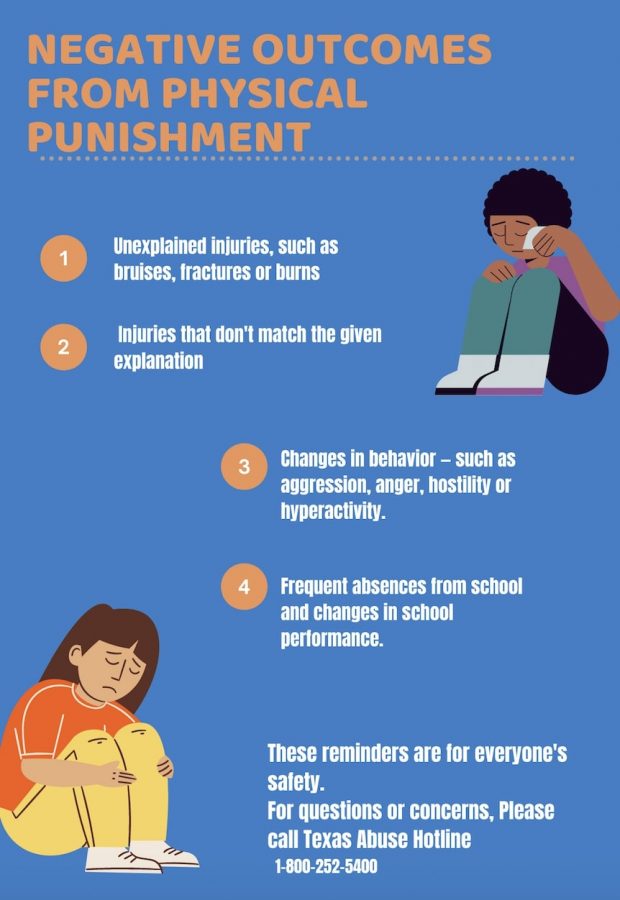UT researchers examine effects of physical punishment on children
July 15, 2021
With child abuse on the rise in Austin during the pandemic, UT researchers, along with other universities, released a report in June detailing how physically punishing children can increase poor behavior.
Elizabeth Gershoff, director of the Population Research Center at the University, researches how parental and school discipline affects children and how education programs can improve children’s lives. Gershoff said decades of research have shown that physical punishment is not effective at teaching children how to behave. Instead, it increases a child’s risk of developing behavior problems.
“One of the main reasons parents spank their children is because their parents spanked them,” Gershoff said. “Children do not come with manuals, and so we learn how to parent from watching and listening to others. … Our own parents are our first teachers. Most parents are spanking out of a genuine belief that it is either necessary or effective, but research has shown us those beliefs are misguided — spanking is neither necessary nor effective.”
About 250 children were killed in 2020 due to abuse and abandonment, according to the Texas Department of Family and Protective Services. Gershoff said physical punishment is a generational cycle.
“Importantly, the vast majority of physical abuse starts out as physical punishment — in other words, the abusing parent is responding to a child’s behavior and just hits too long, too hard or with an object, and causes injury,” Gershoff said.
There are many ways of addressing children’s behavior that do not involve punishment of any kind, Gershoff said.
“We as adults need to treat children’s misbehaviors as mistakes — children are still learning about the world, and they need adult guidance in making good choices,” Gershoff said.
The Stop Abuse For Everyone program, an organization providing parental education and family support to parents with children 11 and younger, said they can help families who are seeking positive strategies to improve their kids’ behavior and reduce the stress of parenting, according to their website.
Liz Garbutt, the program’s senior director of family support and advocacy, said positive discipline begins with understanding how to handle the immediate problem and determining the goal.
“Instead of saying, ‘Stop running and yelling!’ try saying, ‘Walk please, and use your indoor voice.’” Garbutt said. “A preschooler needs plenty of reminders and reinforcements about what they are supposed to do.”











